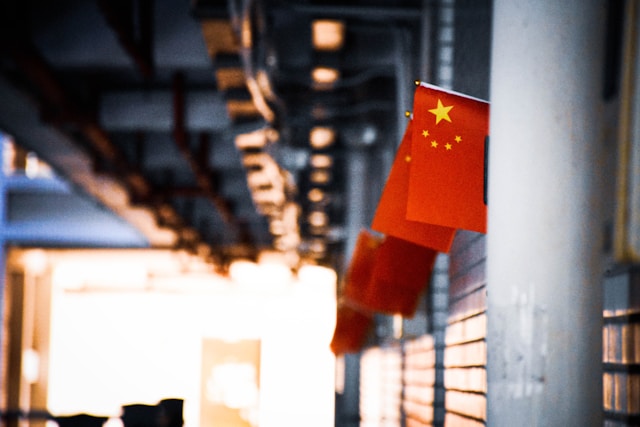
In China, the court’s adjudication committee often participates in the trial of complicated cases, but its opinion will not be presented in the judgment prepared by the tribunal. In other words, the adjudication committee’s activities and the information relating thereto are unknown to the parties concerned. The Supreme People’s Court (SPC) is trying to change this situation.
On 2nd Aug. 2019, the SPC of China promulgated the Opinions of the Supreme People’s Court on Improving the Working Mechanism of the Adjudication Committee of the People’s Court (最高人民法院关于健全完善人民法院审判委员会工作机制的意见), requiring the decision made by the adjudication committee and the grounds thereof on the case to be made public in the adjudicative documents.
Dr. Shao Liuyi (邵六益), a lecturer at Minzu University of China, published an article titled “Adjudication Committee and Collegial Panel: Hidden Dialogue in Judicial Decisions” (审委会与合议庭:司法判决中的隐匿对话[1]) in this year, observing the decision-making mechanism of the adjudication committee. This will help us better understand why the SPC desires such a change.
I. The adjudication committee collaborates with judges in case trial
Chinese judges, if confronted with complicated cases, will generally refer them to the adjudication committee of the court. According to Article 10 of the Organic Law of the People’s Court (人民法院组织法), "The task of the adjudication committee is to sum up the trial experience and discuss major or complicated cases and other trial-related issues."
The tribunal reports the issues to the adjudication committee, which will discuss them from legal, political and social perspectives, and feed back its conclusion to the panel. Then, the tribunal will deliver this conclusion in the form of legal reasoning when preparing the judgment.
Thus, it can be seen that the adjudication committee does actually participate in the case trial. However, the thoughts of the adjudication committee will not be directly written in the judgment, but mainly reflected in the meeting minutes.
The author collected the meeting minutes of the adjudication committee of the Intermediate People’s Court of K City in S Province from 2011 to 2015. These minutes will help us understand how judges and the adjudication committee collaborate with each other.
II. How many cases will be discussed by the adjudication committee?
From 2011 to 2015, the adjudication committee of K City Intermediate People’s Court held 45, 32, 24, 24 and 22 meetings respectively to discuss 213, 153, 125, 159 and 120 cases, totaling 770 cases. Compared with the increasing total number of cases in that court every year, the number and proportion of cases involving the adjudication committee show a downward trend. This shows that the adjudication committee is getting less and less involved in the case trial.
This is what the SPC hopes to achieve: let judges try cases independently as far as possible, while the adjudication committee focuses on summing up the trial experience.
|
|
2011 |
2012 |
2013 |
2014 |
2015 |
|
Total number of cases accepted |
- |
2560 |
2980 |
3468 |
4668 |
|
Number of cases discussed by the adjudication committee |
213 |
153 |
125 |
159 |
120 |
|
The proportion of cases discussed by the adjudication committee |
- |
5.98% |
4.19% |
4.58% |
2.57% |
III. What kind of questions will the adjudication committee receive?
In the article, the author divided the questions into six types.
1. Court proceedings related: 213 cases
These cases referred to those that, be it complicated or not, shall go through the discussion by the adjudication committee according to the requirements of the SPC. One example is criminal cases involving the immediate execution of the death sentence.
2. Law application related: 72 cases
These cases were those with situations where legal provisions were lacking or unclear. Therefore, the collegial panel needed to turn to the adjudication committee for suggestions on the application of law.
3. Fact-finding related: 324 cases
If the collegial panel is not sure how to make a judgment on the fact-finding, it may also turn to the adjudication committee. The adjudication committee members usually have a wealth of judicial experience, so they are better at making judgments than ordinary judges.
4. Politics related: 25 cases
If political factors are involved in the case, the tribunal will not be capable of making reasonable judgments on its own. Under such circumstances, the adjudication committee will be responsible for deciding what political consequences will arise. What’s more, the adjudication committee may even invite representatives of the National People's Congress (NPC) and members of the Chinese People's Political Consultative Conference (CPPCC) to participate in discussing the case, thus resolving the political pressure faced by the court.
5. Social impact related: 111 cases
These cases mainly referred to judgments that will affect the behavior or views of the public or specific social groups. For example, when discussing cases of intentional homicide, the adjudication committee will take into account the views of local residents on the case.
6. Xinfang related: 25 cases
The petition filed through letters and visits (in Chinese:信访(Xinfang)), a unique complaint mechanism in China, usually refers to complaints filed before the court at a higher level or a Communist Party of China (CPC) organization. If Xinfang is involved in the case, the court will attach great importance to the case. At this point, the adjudication committee will provide necessary suggestions to the collegial panel.
IV. What feedback does the adjudication committee give to the tribunal?
When the tribunal consults the adjudication committee, it often puts forward its own views. Will the adjudication committee accept the views of the tribunal? According to Dr. Shao’s article, from 2011 to 2015, the proportion of different feedbacks from the adjudication committee was as follows:
|
Decision type |
Proportion |
|
(Unanimous) Opinions of the tribunal |
47.66% |
|
Majority opinion |
17.53% |
|
Minority opinion |
10.78% |
|
Dissenting opinion |
3.64% |
|
To be determined |
11.82% |
|
Request instructions |
4.94% |
|
Mediation |
3.25% |
|
Other |
0.013% |
1. The most common situation, with 367 cases, was that the adjudication committee adopted the unanimous opinion of the tribunal.
2. 135 cases were those with different opinions from the tribunal, and the adjudication committee adopted the majority opinion.
3. In 83 cases, the adjudication committee adopted the minority opinion from the tribunal.
4. In 28 cases, the adjudication committee put forward a different opinion, although the collegial panel had reached a consensus on the issue.
5. In 91 cases, the adjudication committee reached the conclusion of "to be determined".
6. There were 28 cases in which the adjudication committee decided to request instructions from other departments (mostly courts at a higher level, i.e. provincial high people’s courts; and sometimes the politics and law committee and the discipline inspection commission of the CPC).
7. In 25 cases, the adjudication committee decided to conduct mediation first, and then made decisions according to the situation.
According to the aforementioned data, the first three types, which total 75.97%, can be categorized as the adjudication committee agrees with all or at least part of the opinions from the tribunal. That is to say, in most cases, the adjudication committee will adopt the opinions of the tribunal.
V. How does the tribunal describe political factors in legal language?
In some cases, the adjudication committee discussed the case from a political perspective and made decisions accordingly. However, the reasoning from a political perspective seems invisible in the judgment, since judges had translated these contents into legal expression.
For example, in the dispute between the taxi company and the drivers about vehicle ownership and operation right, given that there had been a lot of such disputes in the local area at that time, once the court made a judgment, it would establish a demonstration effect. If it was in favor of the driver, it would lead other drivers to sue the taxi company, which would make it difficult for the taxi company to continue its operation; if it was in favor of the taxi company, it would also cause the dissatisfaction of the huge driver group.
At last, the adjudication committee provided the tribunal with a compromised proposal that the vehicle ownership shall be vested in the drivers while the operation right shall be vested in the taxi company.
In the judgment, the court ruled that the vehicle ownership belonged to the drivers according to the basic principle of "he who contributes thereto shall own" from the civil law theory, and at the same time, the operation right belonged to the taxi company with reasons such as "providing quality and affordable public transport services for the people" and "promoting the healthy development of public transport".
VI. My comments
The communication between the tribunal and the adjudication committee is not written in the judgment, so the parties are not aware of it. This ensures that the adjudication committee can discuss the case more frankly. However, according to the Opinions of the Supreme People’s Court on Improving the Working Mechanism of the Adjudication Committee of the People’s Court(最高人民法院关于健全完善人民法院审判委员会工作机制的意见), the adjudication committee will disclose its opinions in judgments in the future.
Will this policy affect the discussion mechanism of the adjudication committee? How will this impact the decision-making mechanism of Chinese judgments? We will keep an eye on its future development.
Reference:
[1] 邵六益:《审委会与合议庭:司法判决中的隐匿对话》,《中外法学》2019年第3期
Cover Photo by kit sanchez(https://unsplash.com/@kitsanchez) on Unsplash
Contributors: Guodong Du 杜国栋








